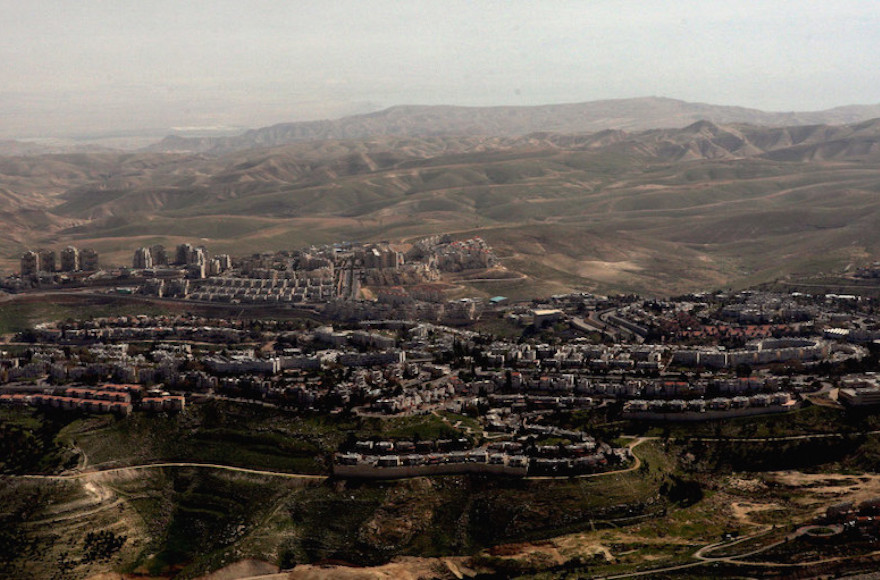WASHINGTON (JTA) — The Trump administration will no longer regard West Bank Jewish settlement as illegal, another dramatic change that aligns it with Israel’s right-wing government.
Secretary of State Mike Pompeo in reviewing the history of U.S. policy on settlements said that since 1978, the United States has regarded settlements as illegal. But, he said, successive presidents have turned a blind eye to some settlement building while condemning other instances.
Pompeo said at a brief news conference Monday on an array of issues that it would now be the U.S. position that “the establishment of Israeli civilian settlements is not per se inconsistent with international law.”
That, in addition to moving the U.S. Embassy to Jerusalem, recognizing the Golan Heights as Israeli and cutting aid to the Palestinians, brings the Trump administration closely in line with the policies of Israeli Prime Minister Benjamin Netanyahu.
Pompeo emphasized that the recognition would not extend to settlements that Israel’s courts deem illegal and the new position does not prejudge the status of the West Bank.
Deeming settlements illegal “hasn’t advanced the cause of peace,” Pompeo said. “There will never be a judicial conclusion to the conflict.”
President Donald Trump’s adviser and son-in-law, Jared Kushner, has led a team that has drafted a peace plan over the past three years, but it has yet to be released. The Palestinians dropped out of the process in December 2017 after Trump recognized Jerusalem as Israel’s capital.
Netanyahu in a statement said that the U.S. decision “rights a historical wrong” and Israel “will continue to reject all arguments regarding the illegality of the settlements.”
Blue and White party head Benny Gantz, who is trying to form a government coalition, also applauded the U.S. move.
“The fate of the settlements and the residents of Judea and Samaria should be determined by agreements that meet security requirements and that can promote peace,” he said in a statement.
JTA has documented Jewish history in real-time for over a century. Keep our journalism strong by joining us in supporting independent, award-winning reporting.






